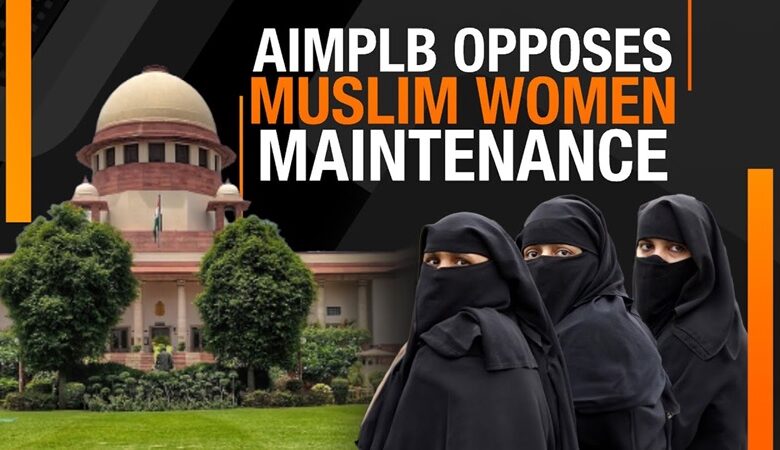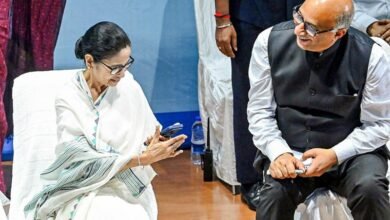AIMPLB Deems Supreme Court Ruling on Muslim Women’s Maintenance Against Sharia Law

News Mania Desk/Agnibeena Ghosh/17th July 2024
The All India Muslim Personal Law Board (AIMPLB) has officially declared that the recent Supreme Court ruling on maintenance for divorced Muslim women is contrary to Islamic law (Shariah). In a significant move, the board has empowered its president to take all necessary steps to reverse this judgment.
The Supreme Court’s landmark decision stated that Muslim women divorced through “triple talaq” are entitled to seek maintenance from their former husbands under Section 125 of the Code of Criminal Procedure (CRPC). The court emphasized that this provision is “religion-neutral” and applies to all married women, irrespective of their personal law. This ruling was made by a bench comprising Justices BV Nagarathna and AG Masih, who firmly rejected the argument that Section 125 of the CRPC is inapplicable to Muslims due to their personal law. They asserted that the Muslim Women (Protection of Rights on Divorce) Act, 1986, does not override the secular provisions of the CRPC.
During a recent meeting in Delhi, the AIMPLB working committee highlighted that the Holy Prophet had stated divorce is the most disliked permissible act in the sight of Allah and that it is preferable to maintain a marriage by all permissible means. However, if married life becomes unbearable, divorce is considered a solution. The board contends that the Supreme Court’s judgment will create additional challenges for women who have left painful relationships, arguing it is unreasonable to require a man to maintain his ex-wife after the marriage has ended.
The AIMPLB has authorized its president, Hazrat Maulana Khalid Saifullah Rahmani, to explore all possible measures to overturn the court’s decision through legal, constitutional, and democratic means. This includes engaging with the central government and the Opposition on the issue, as stated by AIMPLB spokesperson Syed Qasim Rasool Ilyas.
This ruling has sparked significant debate within the Muslim community, as it challenges the traditional understanding of maintenance obligations post-divorce. The AIMPLB’s stance is that the court’s decision interferes with Islamic principles and adds unnecessary burdens on divorced Muslim men.
In addition to addressing the alimony issue, the AIMPLB adopted five more resolutions during their meeting, including one against the Uniform Civil Code (UCC). The board’s legal team is preparing to file a petition in the Uttarakhand High Court later this month to challenge the UCC. This opposition stems from concerns that the UCC would undermine the cultural and religious diversity of India by imposing a uniform set of laws applicable to all citizens, thereby infringing upon the rights of minority communities.
The AIMPLB’s resolution against the Supreme Court ruling reflects a broader apprehension about the encroachment of secular law on religious practices. It underscores the ongoing tension between personal laws, which govern marriage, divorce, and maintenance among various religious communities, and the secular legal framework that seeks to ensure equal rights for all citizens.
As the AIMPLB moves forward with its plans to challenge the Supreme Court’s decision, the legal and political landscape surrounding personal laws and secularism in India is set to become even more contentious. The outcome of these efforts will have far-reaching implications for the rights of Muslim women and the balance between religious autonomy and secular governance in the country.






